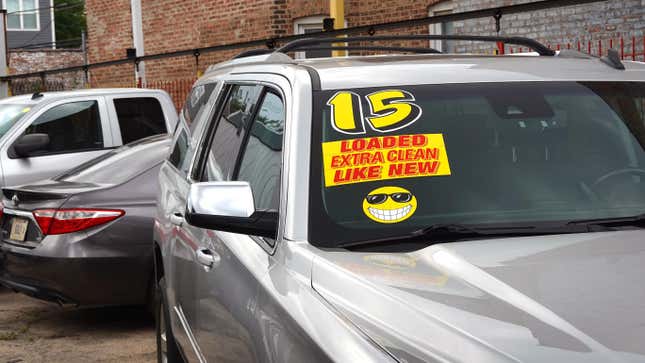
If you’re in the market for a car but have hesitated on actually buying something brand new because you’ve heard how quickly a new car loses value, then you’ll be interested in a new CNBC report: New cars are actually depreciating at a much slower rate than in the past. In fact, new cars are holding onto about 10 percent more of their value after three years than they had been back in 2019 — and yes, that’s partially due to the shake-ups caused by the COVID-19 pandemic.
For years, we operated under the notion that new cars drop in value the moment you drive them off the lot, no matter how well you care for them. That dictum held true under normal circumstances, but the pandemic was far from normal. Auto factories shut down for a while, and lingering supply chain woes hampered production for months after they reopened. New cars weren’t hitting lots in the same quantity as before, so we were left turning to the used market.
The result? Used cars became hot commodities. Where car values used to immediately depreciate, prospective used car buyers were facing new-car prices. In some cases, used cars were actually appreciating.
As the world has returned to something resembling normalcy, used car prices have normalized a bit but they’re still not depreciating like they used to.
Roughly three years out, CNBC has found that cars are holding about 10 percent more of their value than they had been after three years of ownership when compared to the pre-pandemic era; back then, you could expect a three-year-old car to have lost half its value. Yes, you should still expect to see a loss in value, but it’s not going to be near as drastic as it was in the past.
For more, make sure you head over to CNBC, which has put together an almost 13-minute segment about depreciation — both what we used to see in the pre-pandemic years, and why we’re seeing so many changes now.

